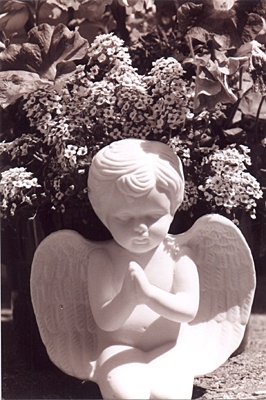All Nonfiction
- Bullying
- Books
- Academic
- Author Interviews
- Celebrity interviews
- College Articles
- College Essays
- Educator of the Year
- Heroes
- Interviews
- Memoir
- Personal Experience
- Sports
- Travel & Culture
All Opinions
- Bullying
- Current Events / Politics
- Discrimination
- Drugs / Alcohol / Smoking
- Entertainment / Celebrities
- Environment
- Love / Relationships
- Movies / Music / TV
- Pop Culture / Trends
- School / College
- Social Issues / Civics
- Spirituality / Religion
- Sports / Hobbies
All Hot Topics
- Bullying
- Community Service
- Environment
- Health
- Letters to the Editor
- Pride & Prejudice
- What Matters
- Back
Summer Guide
- Program Links
- Program Reviews
- Back
College Guide
- College Links
- College Reviews
- College Essays
- College Articles
- Back
Not-So-Silent Majority MAG
We live in a media-saturated world. Skim the paper, and the debate rages over the role of race in Trayvon Martin's death. Turn on the television, and our political leaders argue about the health care rights of women versus men. Open up a web page, and Lady Gaga, Chris Colfer, and other celebrities band together to fight homophobia. As a nation, we're finally starting to take a stand and fight the hate. As an Indian-American daughter of immigrants, the worst discrimination that I've faced isn't about skin color, gender, or sexual orientation. With these, if a situation truly got out of hand, I could always turn to an authority figure for support – after all, racism, sexism, and homophobia are popular issues now, and resources are seconds away.
While these forms of bullying are the most commonly acknowledged, a silent menace sweeps through our nation. It embodies itself in subtle ways through innocuous words like “service” and “unity.” Sometimes it's a friend's simple suggestion – persistent, nagging, trying to drive a point home. Sometimes it's nothing more than a tone of voice, an air of superiority, or that clique from which I am expressly forbidden. And then, sometimes, it's not so subtle – an event invitation on Facebook that devolves into a fiery comment thread of anger, ego, and hate. A conversation between friends that ends with harsh words and tears. An accusation leveled at a group of people, left to defend an identity that they never saw as flawed.
You see, I am not part of the Christian majority.
Though our Constitution provides for freedom of religion, the First Amendment more often than not supports those who seek to change others' beliefs. The religion clause allows my classmates to tell me to go to church with them, to find Jesus, because ultimately, the path I follow is wrong. The school administration punishes my peers for saying the n-word, or for using a six-letter substitute for “gay.” But it's at a loss when my elementary school classmate tells me that I pray to clay pots and am going to hell, or when another student asks if I'll come back from India kowtowing to cows, and slams the floor in an overenthusiastic demonstration.
As we seek to educate teenagers about racism, sexism, and homophobia in an effort to combat bullying, we have failed to address the issue of religious elitism. Somewhere amidst the school-sponsored Bible studies and prayer groups, students are taught that pressuring someone to convert – even when it involves an imbalance of power – is acceptable. When I'm told that as a non-Christian, I have no place in America, it isn't just the bullying that hurts; it's the silence, the lack of adequate response.
Maintaining religious freedom is important, and so is learning to understand others' beliefs, especially when they differ from our own. The embodiment of this acceptance is found in Christianity: “Love thy neighbor as thyself” leaves no room for religious superiority or exclusivity.

Similar Articles
JOIN THE DISCUSSION
This article has 2 comments.

4 articles 0 photos 1 comment
Favorite Quote:
The World is my country, all mankind are my brethren, and to do good is my religion. - Thomas Paine